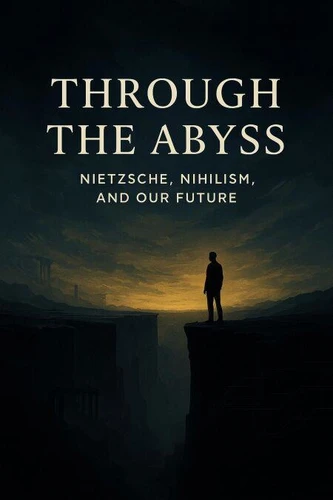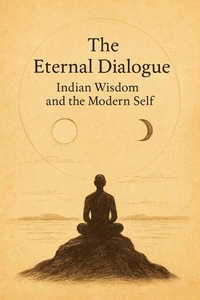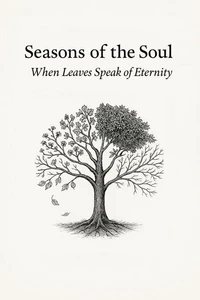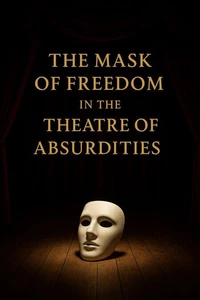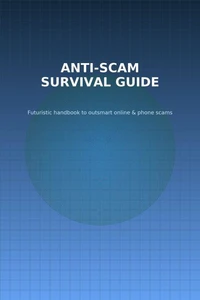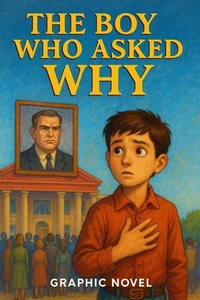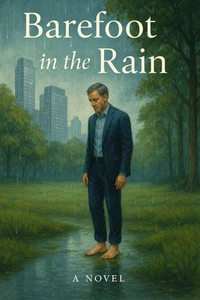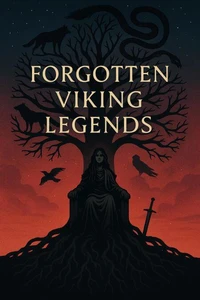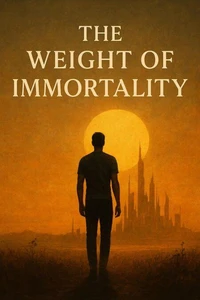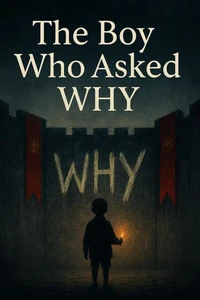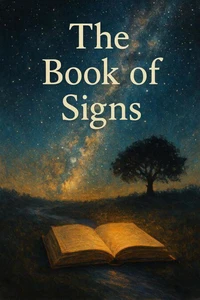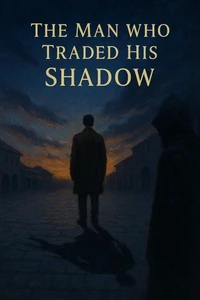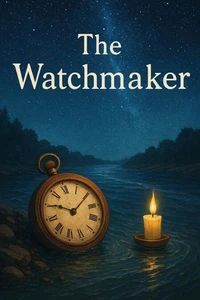Nouveauté
Through the Abyss: Nietzsche, Nihilism and Our Future
Par :Formats :
Disponible dans votre compte client Decitre ou Furet du Nord dès validation de votre commande. Le format ePub est :
- Compatible avec une lecture sur My Vivlio (smartphone, tablette, ordinateur)
- Compatible avec une lecture sur liseuses Vivlio
- Pour les liseuses autres que Vivlio, vous devez utiliser le logiciel Adobe Digital Edition. Non compatible avec la lecture sur les liseuses Kindle, Remarkable et Sony
 , qui est-ce ?
, qui est-ce ?Notre partenaire de plateforme de lecture numérique où vous retrouverez l'ensemble de vos ebooks gratuitement
Pour en savoir plus sur nos ebooks, consultez notre aide en ligne ici
- FormatePub
- ISBN8232297855
- EAN9798232297855
- Date de parution26/09/2025
- Protection num.pas de protection
- Infos supplémentairesepub
- ÉditeurHamza elmir
Résumé
"God is dead." With these words, Friedrich Nietzsche announced not only the collapse of an ancient worldview but the beginning of a crisis that still defines us. In the nineteenth century, his words were a provocation. In the twenty-first, they are reality. Religion has lost its authority, false idols have risen in its place, and humanity now faces the abyss Nietzsche foresaw: nihilism, loneliness, and the struggle for meaning in a disenchanted world.
Through the Abyss: Nietzsche, Nihilism and Our Future explores Nietzsche's famous proclamation, the dangers it unleashed, and its uncanny fulfillment in modern culture. From Darwin to artificial intelligence, from political ideologies to consumer culture, the book traces how Nietzsche's warnings have shaped the last century and a half. It shows how his critique of the herd, his fear of false gods, and his challenge to create new values speak directly to our age of anxiety, distraction, and digital conformity.
But this is not only a book about crisis. It is also a search for solutions. Moving beyond Nietzsche's diagnosis, it outlines a possible foundation for life after the death of God: truth instead of illusion, creativity instead of conformity, community and responsibility instead of isolation, reverence for life and nature instead of exploitation, and spirituality without dogma instead of false idols.
Both philosophical and deeply human, Through the Abyss invites the reader to walk with Nietzsche across the chasm of nihilism and to discover that the abyss, terrifying as it may be, can also lead to renewal.
Through the Abyss: Nietzsche, Nihilism and Our Future explores Nietzsche's famous proclamation, the dangers it unleashed, and its uncanny fulfillment in modern culture. From Darwin to artificial intelligence, from political ideologies to consumer culture, the book traces how Nietzsche's warnings have shaped the last century and a half. It shows how his critique of the herd, his fear of false gods, and his challenge to create new values speak directly to our age of anxiety, distraction, and digital conformity.
But this is not only a book about crisis. It is also a search for solutions. Moving beyond Nietzsche's diagnosis, it outlines a possible foundation for life after the death of God: truth instead of illusion, creativity instead of conformity, community and responsibility instead of isolation, reverence for life and nature instead of exploitation, and spirituality without dogma instead of false idols.
Both philosophical and deeply human, Through the Abyss invites the reader to walk with Nietzsche across the chasm of nihilism and to discover that the abyss, terrifying as it may be, can also lead to renewal.
"God is dead." With these words, Friedrich Nietzsche announced not only the collapse of an ancient worldview but the beginning of a crisis that still defines us. In the nineteenth century, his words were a provocation. In the twenty-first, they are reality. Religion has lost its authority, false idols have risen in its place, and humanity now faces the abyss Nietzsche foresaw: nihilism, loneliness, and the struggle for meaning in a disenchanted world.
Through the Abyss: Nietzsche, Nihilism and Our Future explores Nietzsche's famous proclamation, the dangers it unleashed, and its uncanny fulfillment in modern culture. From Darwin to artificial intelligence, from political ideologies to consumer culture, the book traces how Nietzsche's warnings have shaped the last century and a half. It shows how his critique of the herd, his fear of false gods, and his challenge to create new values speak directly to our age of anxiety, distraction, and digital conformity.
But this is not only a book about crisis. It is also a search for solutions. Moving beyond Nietzsche's diagnosis, it outlines a possible foundation for life after the death of God: truth instead of illusion, creativity instead of conformity, community and responsibility instead of isolation, reverence for life and nature instead of exploitation, and spirituality without dogma instead of false idols.
Both philosophical and deeply human, Through the Abyss invites the reader to walk with Nietzsche across the chasm of nihilism and to discover that the abyss, terrifying as it may be, can also lead to renewal.
Through the Abyss: Nietzsche, Nihilism and Our Future explores Nietzsche's famous proclamation, the dangers it unleashed, and its uncanny fulfillment in modern culture. From Darwin to artificial intelligence, from political ideologies to consumer culture, the book traces how Nietzsche's warnings have shaped the last century and a half. It shows how his critique of the herd, his fear of false gods, and his challenge to create new values speak directly to our age of anxiety, distraction, and digital conformity.
But this is not only a book about crisis. It is also a search for solutions. Moving beyond Nietzsche's diagnosis, it outlines a possible foundation for life after the death of God: truth instead of illusion, creativity instead of conformity, community and responsibility instead of isolation, reverence for life and nature instead of exploitation, and spirituality without dogma instead of false idols.
Both philosophical and deeply human, Through the Abyss invites the reader to walk with Nietzsche across the chasm of nihilism and to discover that the abyss, terrifying as it may be, can also lead to renewal.

